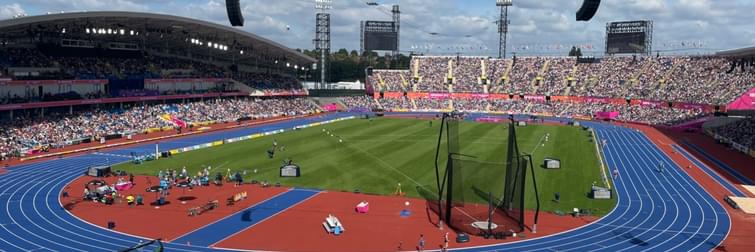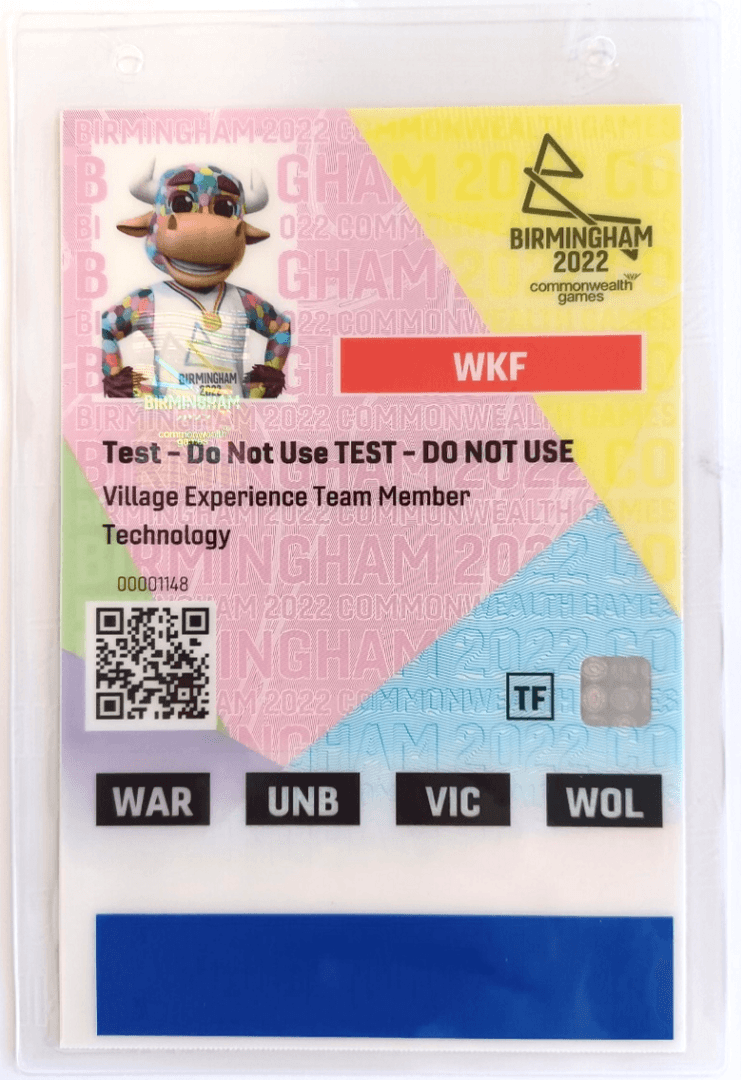
blog: Birmingham 2022 – Delivering a Greener Games one bus, train and metro at a time
Friday 14th October 2022
In early January 2021, long before my Influencing Behaviour colleagues joined the Commonwealth Games team at Transport for West Midlands (TfWM), I became part of the advance transport planning party, when the Games were a mere speck on the horizon.
Birmingham 2022 aimed to be the Greenest Games ever. From a transport perspective, this involved encouraging and enabling all Games clients- whether ticketed spectators, staff or Games Family – to travel to the Games using sustainable modes. Following the decision to offer public transport to all Games clients that was free at point of use, TfWM needed to work out how to make it happen. How would they ensure that bus, rail and metro operators across the West Midlands and beyond were able to meet the demand for Games travel without disadvantaging existing passengers – and, importantly, be suitably reimbursed for doing so?

I was set to work to assist the CWG team to develop a cost model that pinned down the variables that would affect demand for travel. The model considered how many people were expected to travel, where they were expected to travel from, when they were expected to travel, which venues they were expected to travel to and whether they would ordinarily be farepaying or concessionary travellers. Pretty much everything apart from the inside leg measurement was estimated and fed into the model. Existing ticket types were used to arrive at a value per trip per Games client that would be acceptable to rail, bus and metro operators.
Having arrived at a mutually agreeable financial settlement for each mode, the dreaded news broke that rail strikes were imminent at Games time. The process of reimbursement that was done and dusted pre-Games quickly became a post-Games reapportionment task that no one would have wished for.
Having put the funding arrangements to bed – or so we thought – attention turned to public transport ticketing for the Games. What evidence would any Games client need to demonstrate that they did not need to pay a fare for their journey? The ‘Green Games’ ethos played an important role in determining the ticketing methods that were used. Recycled paper smartcards were considered for staff and Games family but discounted as the technology had not been fully tried and tested and failsafe solutions were required given the numbers of people travelling. Ultimately, it was determined that the Games accreditation would be dual purpose, also acting as a pass for travel.
The event ticket also performed a dual-purpose role as a travel pass and to access Games venues. The challenge of developing a QR code that would be scanned to validate venue access and public transport access proved too great on this occasion but is definitely one to think about for future Games as the technology progresses apace.
In the latter stages of my role, I was responsible for drafting Terms and Conditions of use for the event ticket and the accreditation for travel by public transport, which ultimately fed through into the core messaging developed by the Travel Demand Management team at TfWM and my Influencing Behaviour colleagues. I also prepared training materials for operators to deliver training to their frontline staff, to enable them to validate event tickets and accreditations to reduce fraud, squaring the circle back to the previous commercial deal work.
Having never worked on public transport for a major sporting event before, I didn’t know what to expect from Birmingham 2022 – but I really enjoyed the experience. I read the headline in the trade press on 10th August West Midlands’ public transport hits record numbers throughout Commonwealth Games and felt a real sense of pride in having been involved in some small way in making that happen.
So, what were the main take-aways from the experience? I guess the sheer breadth of passenger transport experience and expertise required to deliver a Green Games is staggering – as is the amount of time required to do so. It was rewarding to work with such a dedicated, multi-disciplinary team to make it happen. Whilst Covid did its level best to disrupt matters, the Games transport team demonstrated that although remote working is not ideal, it is possible to achieve results via online meetings and quick Teams calls in the planning stages. It will be interesting to see how the new ways of working resulting from the pandemic will carry through into the organisation of passenger transport for Victoria 2026.
And next time I’ll remember not to book a holiday when the Games are on – although it did mean that I had lots of time to watch the action at the venues rather than think about how people were going to get there!
Find more information about ITP’s work in delivering passenger transport solutions here, or to find out how we can best support you, please get in touch.
